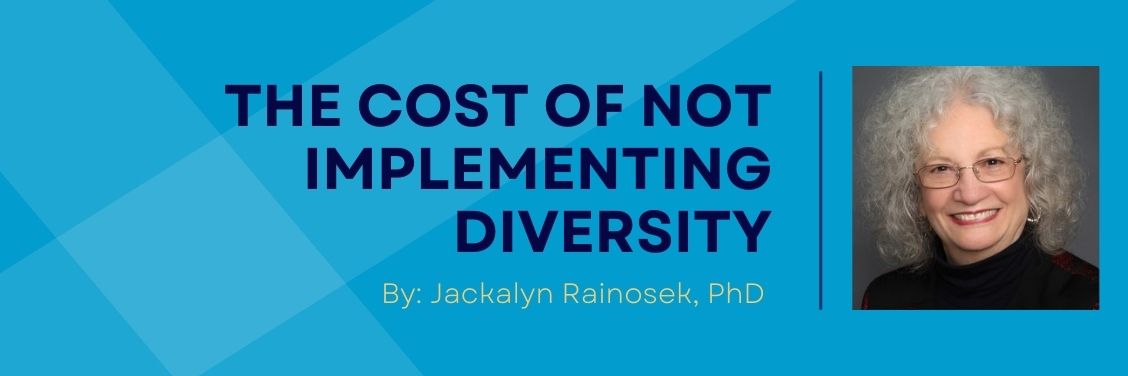
Questions to ask in the Board Room
- How do women provide a different perspectives versus men on a board?
- What is an “echo chamber of thought” in a board?
- How can the social responsibility of a business be addressed by the board with a DEI (Diversity, Equity, Inclusion) initiative?
Family-Owned and Privately-Owned Businesses and the Importance of DEI
Meghan Juday, who is CEO of her family-owned business, IDEAL Industries, joined Alan Aldworth on a PDA Shine Podcast to discuss “IDEAL relationships, board structure and board process, and to share her experience of family ownership, boardroom challenges and the value of an all-women network.” She also discussed the value they see in their DEI focus. She indicated that the shift in products and expansion of their business was due to the diversity of ideas and expertise that they had on their newly formed board. This diversity of thought helped them go through the recent pandemic with remarkable success and continue to build and expand their organization. She saw the value of having more women involved, as well as different races and age diversity, since this eliminated what she called an “echo chamber of thought.” Meghan made the point that, “If one grows up in a family, works in a family-owned business, and DEI is not supported, then you end up with an organization and work environment that has no unique thoughts or ideas and is limited in finding solutions that are beyond the current family echo chamber.” This is a 100-year-old company, and they are more excited than ever about the products, the board, and organizational culture.
Family-owned and privately-owned businesses have a social responsibility to their communities. It has become important for the executives of organizations and the members of their boards to expand their concept of social responsibility and provide a balance for social, moral, and economic concerns in a single effort. DEI programs that include employees and board members can provide balance. My own experience on boards and working in organizations has taught me that learning to manage diversity heightens the abilities of all members of the organization. They go beyond their original knowledge and experiences and expand who they are personally and professionally.
The Cost of Not Implementing a DEI Initiative
The cost of implementing a DEI Initiative and programs is insignificant compared to the cost in the last two decades of not providing DEI programs. Citigroup continues to do studies every year on the cost of resisting DEI in the workplace, and the cost continues to rise when boards, owners, executives, and employees ignore the impact of people being excluded rather than included. Their 2020 study (https://www.npr.org/sections/-u-s-economy-lost-16-trillion-because-of-discrimination) showed that in two decades the loss for American businesses was $16 trillion dollars. The healthcare costs alone remain high due to the stress level that many people experience physically, emotionally, mentally, and spiritually. This impacts their performance and lessens their ability to reach their potential. The study further indicates that when people can bring their whole authentic selves to the workplace then the profits skyrocket. This benefits all involved in the board, the organization, and the customer base of the organization.
In-depth Study of a Board by Dr. Rainosek
I was asked by a board to do an in-depth study of an organization. I used a detailed organizational assessment and cultural audit, interviewed all the executives, and used a survey to determine the staff’s view of the organization. I presented the summary of my 50-page paper to the board members and executives. The report identified where the strengths and deficiencies were in the organization and in their knowledge and experience and made clear the need for the implementation of a DEI Initiative.
The study showed the reasons for the lack of retention of valuable employees due to their experiences in the work environment. Many of the stories shared during the interviews and the survey had not been brought to the attention of HR or any other members of the organization. The CEO of the company and I had many discussions about the report since it showed how all employees were impacted by exclusionary actions and other forms of discrimination that were feeding the low morale in the organization and contributing to a decrease in productivity. We realize that formal and informal norms of the organization that had not been documented fed the exclusion and hurt all individuals: Whites, African Americans, Black people, Asians, Latinx, Native Americans, LGBTQ, women, men, and the physically challenged.
The board and executives collaborated with me to develop a step-by-step plan that gave the employees a map of how we would go through developing a respectable and equitable way of creating a diverse workforce at all levels as well as a diverse board. The executives invested and committed to learning how to manage a diverse workforce. The board went through a separate but related training focused on what the board needed to do to make the necessary changes. Both the executives and board accepted that organizational and cultural changes had to occur. Business goals and objectives were tied to the DEI Initiative. The vision, mission and values were changed to support the DEI initiative and programs. Today, the original executive and board members are gone; however, the lessons learned, and DEI programs still exist today. They continue to support the changes implemented several years ago.
Final Resource and Comments
One of the most detailed and through studies occurred in October 2010 and was updated December 11, 2014. The reference list alone is worth reviewing. The title of the article is “Diversity on Corporate Boards: How Much Difference Does Difference Make,” Delaware Journal of Corporate Law {DJCL}, Vo. 39, NO. 2 pp. 3776-426, 2014 (https://papers.ssrn.com/sol3/papers.cfm?abstract_id=1685615).
These are the quotes from their abstract:
“In recent years, increasing attention has focused on the influence of gender and racial diversity on boards of directors. Sixteen countries now require quotas to increase women’s representation on boards, and many more have voluntary quotas in corporate governance codes. In the United States, support for diversity has grown in principle, but progress has lagged in practice, and controversy has centered on whether and why diversity matters. The stakes in this debate are substantial. Corporate boards affect the lives of millions of employees and consumers, and the policies and practices of the global marketplace. As recent scandals demonstrate, failures in board governance can carry an enormous cost; Enron is a notorious example. Who gains access to these boards is therefore an issue of broad social importance. This article argues that increasing diversity should be a social priority, but not for the reasons often assumed. Part II begins the discussion by reviewing the underrepresentation of women and minorities on corporate boards. Part III provides a comprehensive review of the research on board diversity, financial performance, and good governance and concludes that the ‘business case for diversity’ is less compelling than other reasons rooted in social justice, equal opportunity, and corporate reputation. Part IV turns to the barriers to achieving greater diversity, and Part V explores strategies that could address them.”
The resources provided give each board member and chair the opportunity to move from fear to excitement about the impact that diversity can have on a board. There are many more articles you can find that will support and describe how to encourage the formation of a diversity imitative for your board.
More Questions for Board Members to Consider
- How could the expansion of the IDEAL business and products come from the diversity of their board?
- After reading the comments and the Citigroup study, what you think will be important for the board to consider and use as a focus for board initiatives?
- What did you learn from the in-depth study that Dr. Rainosek did for an organization and how can this help your board to be more effective?

ABOUT JACKALYN RAINOSEK, PHD
Dr. Jackalyn Rainosek is CEO and Co-Founder of DTP Leadership Group, as well as founder and principal of DTP Business Strategies. She has worked extensively with a wide range of Leaders as they make strategic decisions in ever-changing circumstances to achieve extraordinary results and increase profitability. As a senior business consultant and marketing strategist Dr. Rainosek works with business owners and corporate executives to generate optimal results and exponential growth. Dr. Rainosek guides organizations to develop more appropriate leadership styles, enhance cultural competency (through diversity, equity, and inclusion initiatives), and improve levels of trust and cooperation both internally and with the customer base
